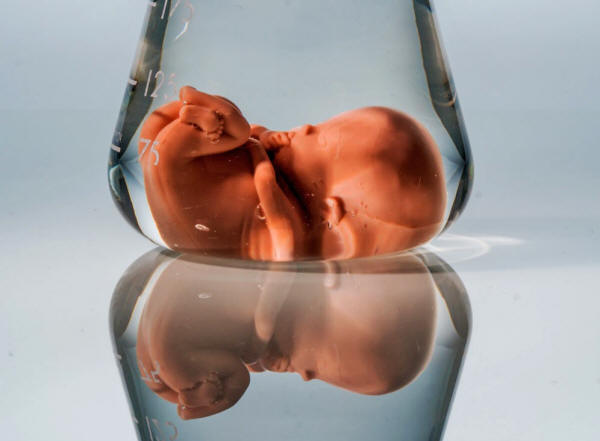|

by Shaoni Bhattacharya
November 26,
2018
from
BioNews Website
Equivalent Spanish version

The world's first gene-edited human babies
have reportedly been born in China
(Credit: ginasanders/Depositphotos)
Source
The first births from
genome edited human embryos have been
announced by a Chinese researcher amid widespread condemnation, and
fears over safety.
Dr.
He Jiankui revealed the birth of the baby twin girls
ahead of a major
genome editing conference in Hong Kong.
Dr. He and his colleagues
used
CRISPR/Cas9 genome editing in human
embryos to remove a gene called
CCR5, with the aim of producing
'HIV-resistant infants'.
The revelation has met with outcry from the scientific community.
'If true, the report
is very concerning,' said Dr. Kathy Niakan of the Francis Crick
Institute in London. 'This would be a highly irresponsible,
unethical and dangerous use of genome editing technology.'
She added:
'Given the
significant doubts about safety, including the potential for
unintended harmful side-effects, it is simply far too premature
to attempt this.'
Professor Darren
Griffin at the University of Kent added:
'Not good, not good,
not good. In a world where scientists, by and large, try to be
aware of ethical and social issues surrounding the work that we
do, this report takes us back to the Stone Age.'
He urged:
'An international
treaty on embryo research is now an absolute priority to prevent
this happening again.'
Sarah Norcross,
director of the Progress Educational Trust (which publishes BioNews)
called the news 'shocking'.
'First, we would have
expected to see a lot more research into the safety and efficacy
of genome editing in human embryos, before attempting to achieve
a pregnancy,' she said.
'Second, we would have expected the first such application of
genome editing to be on an embryo which had a serious genetic
condition with life-limiting consequences.
Given our current
level of knowledge, editing the genome of healthy embryos to
attempt to confer resistance to HIV is completely unethical.'
Dr. He and his colleagues
recruited couples where the male partner had HIV and the female
partner was HIV-negative.
He told the Associated
Press that he had genetically altered embryos for seven couples in
fertility treatment, with one pregnancy so far.
The gene CCR5 codes for a protein that allows HIV to enter and
infect a cell. Individuals who are HIV-resistant have been found to
have mutations in this gene.
However, as the father of the twins (and all the men in the trial)
had viral levels suppressed by standard antiretroviral therapy for
HIV 'there is zero risk of onward viral transmission' to his partner
or children, according to Professor Sarah Fidler at Imperial
College London.
She said that the father
having HIV,
'would not be
considered an indication to look for genetic reasons to prevent
transmission of HIV to the infants'.
The genome editing took
place during
IVF (in vitro fertilization)
treatment.
First, the sperm were
washed to remove any HIV that might be in the semen. Then the sperm
and egg were introduced, along with the genome-editing components.
When the early embryos were five days old, cells were removed and
checked through DNA sequencing to see if the genome editing had
worked. The couples then had the choice of whether to use edited or
unedited embryos for implantation.
Dr. He told AP that 16 of 22 embryos were edited and 11 embryos were
used in six implant attempts to achieve the twin pregnancy.
One of the twins has both copies of the CCR5 gene edited, while the
other twin has only one edited copy. Experts said that this means
that twin will not be protected from HIV infection, but rather might
have slower disease progression if they did contract the virus (see
this week's
Comment).
In a YouTube video, released on Sunday, Dr. He explained the
rationale for the study and said he was willing to take the
criticism on behalf of the families.
He called,
'gene surgery' a
'technology for healing'.
Dr. He recalled the
'media hyped panic' over the birth of the world's first IVF baby,
Louise Brown, 40-years ago.
'Gene surgery is
another IVF advancement and is only meant to help a small number
of families,' he said.
Dr. He's institution, the
Southern University of Science and Technology in Shenzhen, has
disavowed knowledge of twins' birth.
It
said:
'The university was
deeply shocked by this event and has taken immediate action to
reach Dr. Jiankui He for clarification.'
It added that it would be
calling international experts to form an independent committee to
investigate.
SOURCES &
REFERENCES
-
25 November 2018
-
26 November 2018
-
25 November 2018
-
26
November 2018
-
8 November 2018
-
26
November 2018
| 

